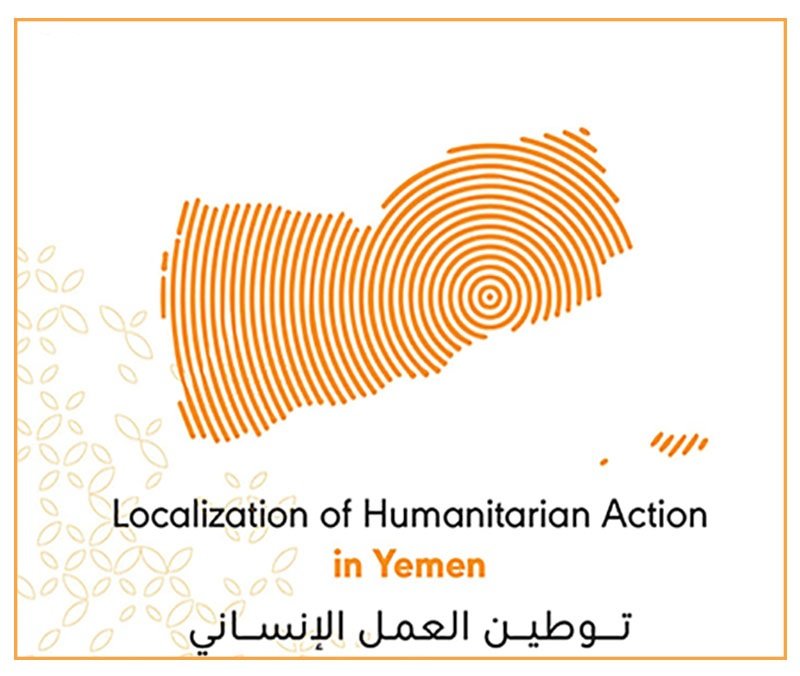نبذة
مختصرة:
تقيّم هذه
الدراسة ممارسات وأثر مبادرات المسؤولية الاجتماعية للشركات (CSR) في القطاع الخاص في اليمن، مما يسهم في استجابة أكثر محلية
للتحديات الإنسانية والتنموية في البلاد. تتضمن الدراسة تقييماً شاملاً لمبادرات
وممارسات المسؤولية الاجتماعية للشركات، وتحديد التحديات والفرص الداخلية
والخارجية، وتقديم توصيات لتعزيز مشاركة القطاع الخاص في الاستجابات الإنسانية
والتنموية في البلاد. يتعمق هذا التقرير في مشهد المسؤولية الاجتماعية للشركات (CSR) في اليمن، ويفحص سياقه التاريخي والثقافي، وتأثير الأزمة
الإنسانية المستمرة، والحالة الراهنة لممارسات المسؤولية الاجتماعية للشركات في
القطاع الخاص اليمني. يستكشف الطرق المختلفة التي تشارك بها الشركات في المبادرات
الاجتماعية، والتحديات التي تواجهها، والفرص المتاحة لتحقيق تأثير أكبر. كما يقدم
التقرير توصيات لكل من القطاع الخاص والهيئات الحكومية لتعزيز جهود المسؤولية
الاجتماعية للشركات والمساهمة في استجابة أكثر استدامة وبقيادة محلية لتحديات
اليمن المعقدة.
الأهداف:
الأهداف
الرئيسية لهذا البحث هي تقييم الحالة الراهنة لممارسات المسؤولية الاجتماعية
للشركات في اليمن، وتحديد التحديات الداخلية والخارجية التي تواجهها الشركات،
وتقديم توصيات لتعزيز مشاركة القطاع الخاص في الجهود الإنسانية والتنموية.
المنهجية:
اعتمدت
الدراسة على منهجية مختلطة تجمع بين الأساليب النوعية والكمية. تم جمع البيانات من
خلال الاستطلاعات، والمقابلات مع أصحاب المصلحة الرئيسيين، ومناقشات مجموعات
التركيز، ودراسات الحالة، والمراجعة المكتبية.
هيكل
المحتوى:
ينقسم
التقرير إلى خمسة أقسام رئيسية، يتناول كل قسم جانباً مختلفاً من المسؤولية
الاجتماعية للشركات في اليمن.
- القسم الأول: يوضح منهجية الراسة، ويقدم معلومات أساسية، والتحديات،
والأهداف، ونهج البحث. كما يفصل طرق جمع البيانات، بما في ذلك المراجعات
المكتبية، ودراسات الحالة، والمقابلات، والاستطلاعات، ويشرح منهجية التحليل
وقيود الدراسة.
- القسم الثاني: يضع الإطار النظري للمسؤولية الاجتماعية، ويستكشف
المفاهيم، والمبادئ، والأهمية، والأبعاد، ومجالات التطبيق. يتعمق في تطور
المسؤولية الاجتماعية للشركات، وأهميتها لمختلف أصحاب المصلحة، والمبادئ
التوجيهية التي تدعم ممارسات الأعمال المسؤولة.
- القسم الثالث: يدرس سياق المسؤولية الاجتماعية في اليمن، بدءاً من
السياق الثقافي والاجتماعي، حيث يناقش تكييف المسؤولية الاجتماعية للشركات مع
الظروف المحلية، والعلاقة بين العمل الخيري والمسؤولية الاجتماعية للشركات،
والأمثلة التاريخية للمسؤولية الاجتماعية في المجتمع اليمني، مع التركيز بشكل
خاص على مفهوم الوقف. ثم يقدم لمحة عامة عن الأزمة الإنسانية في اليمن
وتأثيرها على القطاع الخاص.
- القسم الرابع: يتعمق في نطاق وتركيز مبادرات المسؤولية الاجتماعية
للشركات في اليمن، ويفحص تجربة الشركات في تنفيذ المسؤولية الاجتماعية
للشركات، والفئات المستهدفة والنطاق الجغرافي لهذه المبادرات، والمجالات
المحددة التي تركز عليها، مثل المساهمات الخيرية، ومشاريع التنمية، والشراكات،
وجهود بناء السلام، والمبادرات البيئية. كما يحلل البيئة الداخلية للمسؤولية
الاجتماعية للشركات داخل الشركات، بما في ذلك الحوكمة، وإعداد التقارير،
واحتياجات بناء القدرات، فضلاً عن العوامل والفرص الخارجية التي تؤثر على
المسؤولية الاجتماعية للشركات في اليمن.
- القسم الخامس: يختتم التقرير بسلسلة من التوصيات التي تهدف إلى تحسين
مشاركة القطاع الخاص في المسؤولية الاجتماعية للشركات. هذه التوصيات موجهة
نحو القطاع الخاص نفسه، والهيئات الحكومية، والمنظمات غير الحكومية،
والوكالات الدولية، وغرف التجارة، والمؤسسات التعليمية، والمجالات المحتملة
للبحث في المستقبل.
يتيح هذا
النهج المنظم للتقرير تقديم فهم شامل ومتنوع للمسؤولية الاجتماعية للشركات في
اليمن، من أسسها النظرية إلى تنفيذها العملي وإمكاناتها للتنمية في المستقبل.
النتائج
الرئيسية:
يكشف
البحث عن مشهد متنوع لمبادرات المسؤولية الاجتماعية للشركات في اليمن، مع تركيز
كبير على المساهمات الخيرية والمساعدات الطارئة. ومع ذلك، فإن تحديات مثل محدودية
الموارد، وضعف هياكل الحوكمة، والصراع المستمر تعيق الإمكانات الكاملة لهذه
الجهود. يحدد التقرير أيضاً فرصاً لتعاون أكبر بين القطاع الخاص والحكومة
والمنظمات الدولية لتعزيز تأثير المسؤولية الاجتماعية للشركات.
الأهمية:
تتمثل
أهمية هذه الدراسة في انها الأولى من نوعها ومن خلال ما تقدمه من صورة للوضع
الراهن لدور القطاع الخاص في الاستجابة وممارسات المسؤولية المجتمعية الحالية ومن
خلال ما تقدمه توصيات إلى مختلف أصحاب المصلحة مثل السلطات الحكومية، والمنظمات
غير الحكومية المحلية والوطنية، والقطاع الخاص، والمنظمات الدولية، والجهات
المانحة التي تهدف إلى تحسين مشاركة القطاع الخاص لمعالجة التحديات الإنسانية
والتنموية في اليمن بشكل فعال. والتي تهدف في مجملها إلى يمننة الاستجابة وتقديم
حلول
دعوة
للعمل:
تسلط هذه
الدراسة الضوء على الدور الحاسم للقطاع الخاص في معالجة التحديات الإنسانية
والتنموية في اليمن. من خلال اعتماد التوصيات الواردة في هذا التقرير، يمكن
للشركات أن تحدث تأثيراً هادفاً ودائماً في حياة السكان الأكثر احتياجا وتأثرا وتساهم
في تعزيز مفهوم توطين الاستجابة المحلية للازمات وتحسين مستقبل نظام الاستجابة في
اليمن. لمزيد من المعلومات قم بتنزيل التقرير الكامل وللحصول على فهم أعمق
لتعقيدات وإمكانات المسؤولية الاجتماعية للشركات في اليمن.
معلومات
إضافية:
- تم تمويل هذه الدراسة من قبل الوكالة الدنماركية للتنمية
الدولية (DANIDA) برعاية المجلس الدنماركي للاجئين (DRC) ومؤسسة تمكين الشباب (TYF).
- التقرير متاح باللغتين العربية والإنجليزية.
- لمزيد من المعلومات أو الاستفسارات، يرجى الاتصال بمؤسسة
تمكين الشباب على info@tamdeen-ye.org أو زيارة موقعهم على الويب www.tamdeen-ye.org




